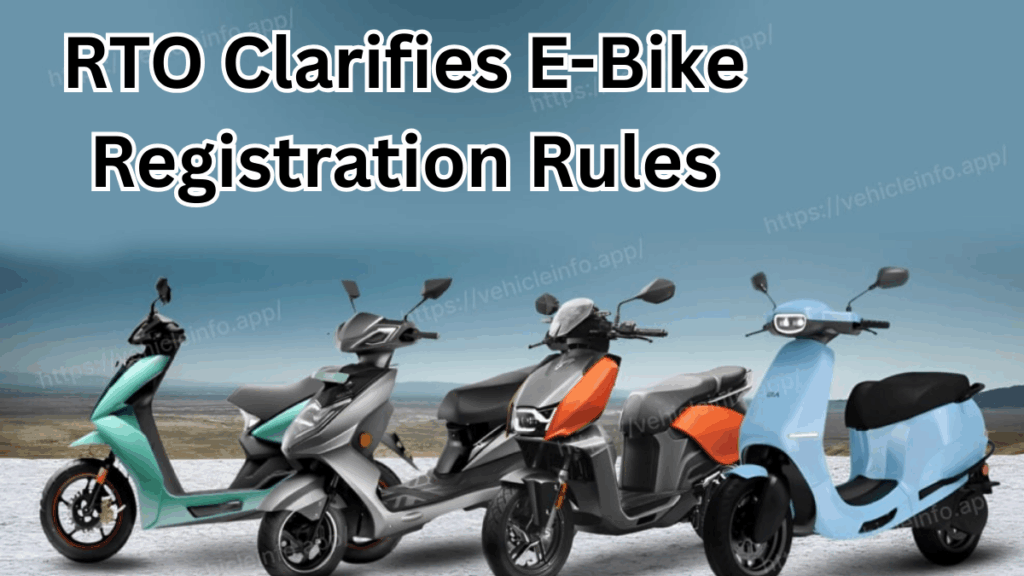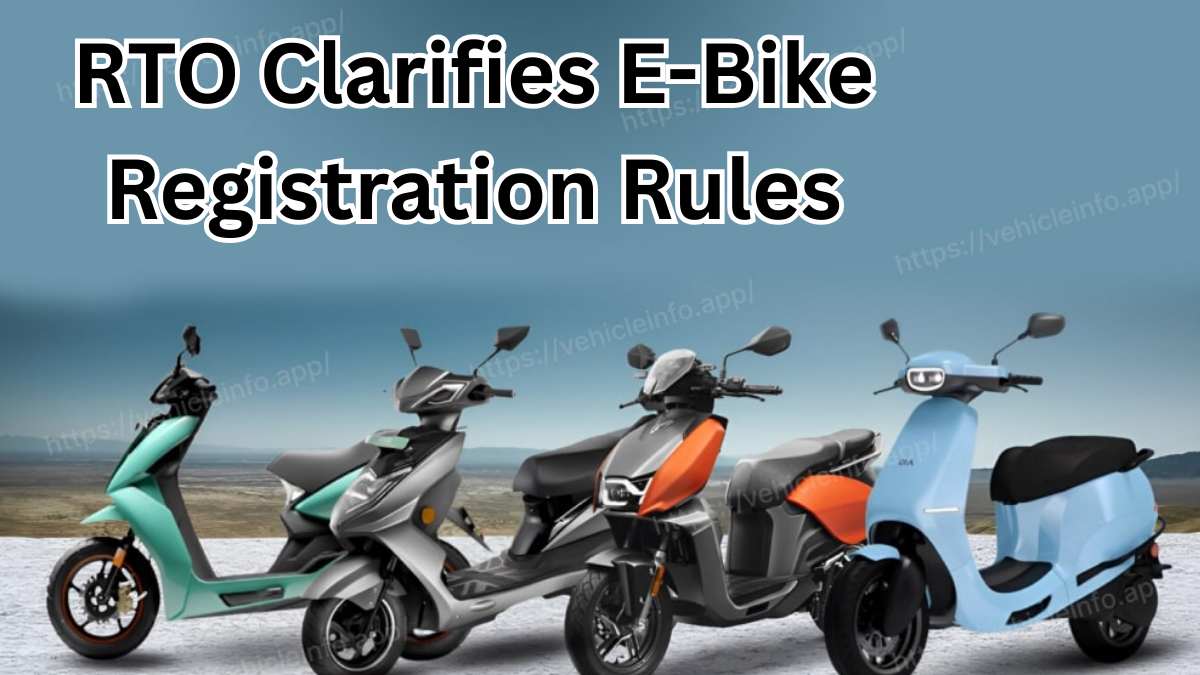As electric bikes continue to gain popularity across India, many users are left wondering about the E-Bike Registration rules. Do you need a number plate? Is insurance mandatory? Recently, the Regional Transport Office (RTO) issued a clarification that clears up much of this confusion.
Let’s break down the latest electric bike rules, highlight which models require registration, and help you understand what’s needed before you hit the road.

The Rise of E-Bikes in India
Electric bikes (commonly referred to as e-bikes) are a convenient, eco-friendly, and cost-effective mode of transport. Whether it’s for daily commuting or recreational rides, e-bikes are becoming the go-to choice for many.
But with their rising popularity, questions around legality and compliance have also surged—particularly when it comes to registration and number plates.
What the RTO Clarified
The RTO has now clearly defined which categories of electric bikes need to be registered.
E-Bikes That Do NOT Require Registration
If your e-bike meets the following criteria, you’re free from registration hassles:
-
Motor Power: Less than or equal to 250 watts
-
Top Speed: Not more than 25 km/h
-
No Pedal Assist: Operates similarly to a bicycle with minimal motor assistance
These bikes are treated like bicycles under current traffic laws.
E-Bikes That DO Require Registration
If your e-bike falls outside the above criteria, registration is mandatory.
| Criteria | Requires Registration |
|---|---|
| Power exceeds 250 watts | Yes |
| Speed goes over 25 km/h | Yes |
| Operates like a scooter or bike | Yes |
| No pedal assist and throttle-only | Yes |
In such cases, the e-bike is treated similarly to conventional motorbikes or scooters under electric bike rules.
What Does E-Bike Registration Involve?
If your e-bike qualifies for registration, you must:
-
Obtain a valid registration certificate from the RTO
-
Affix a number plate
-
Get a driving license
-
Purchase insurance coverage
-
Wear a helmet (as per motorbike regulations)
Why This Matters
The recent surge in electric bike usage has led to misuse, with some high-speed models being sold without proper documentation. The RTO’s clarification aims to bring uniformity and safety by ensuring that faster and more powerful e-bikes are regulated.
This also helps law enforcement easily identify vehicles that are non-compliant with electric bike rules.
FAQs
1. Do all electric bikes need to be registered?
No. Only those with a motor power above 250 watts or a top speed over 25 km/h need to be registered.
2. How do I know if my e-bike requires a number plate?
Check your e-bike’s specifications. If it exceeds 250 watts or 25 km/h, E-Bike Registration is necessary, and you will need a number plate.
3. Can I ride a registered e-bike without a license?
No. If your e-bike is registered, you are legally required to hold a valid two-wheeler license.
4. Is insurance mandatory for electric bikes?
Yes, if the bike requires registration. Just like petrol-powered two-wheelers, insurance is a must for high-powered electric bikes.
Final Thoughts
The RTO’s clarification helps consumers make informed decisions while ensuring road safety and compliance. So, before you purchase or ride an e-bike, double-check whether it meets the E-Bike Registration criteria. It could save you from legal trouble—and keep you safer on the road.
Click here to learn more
